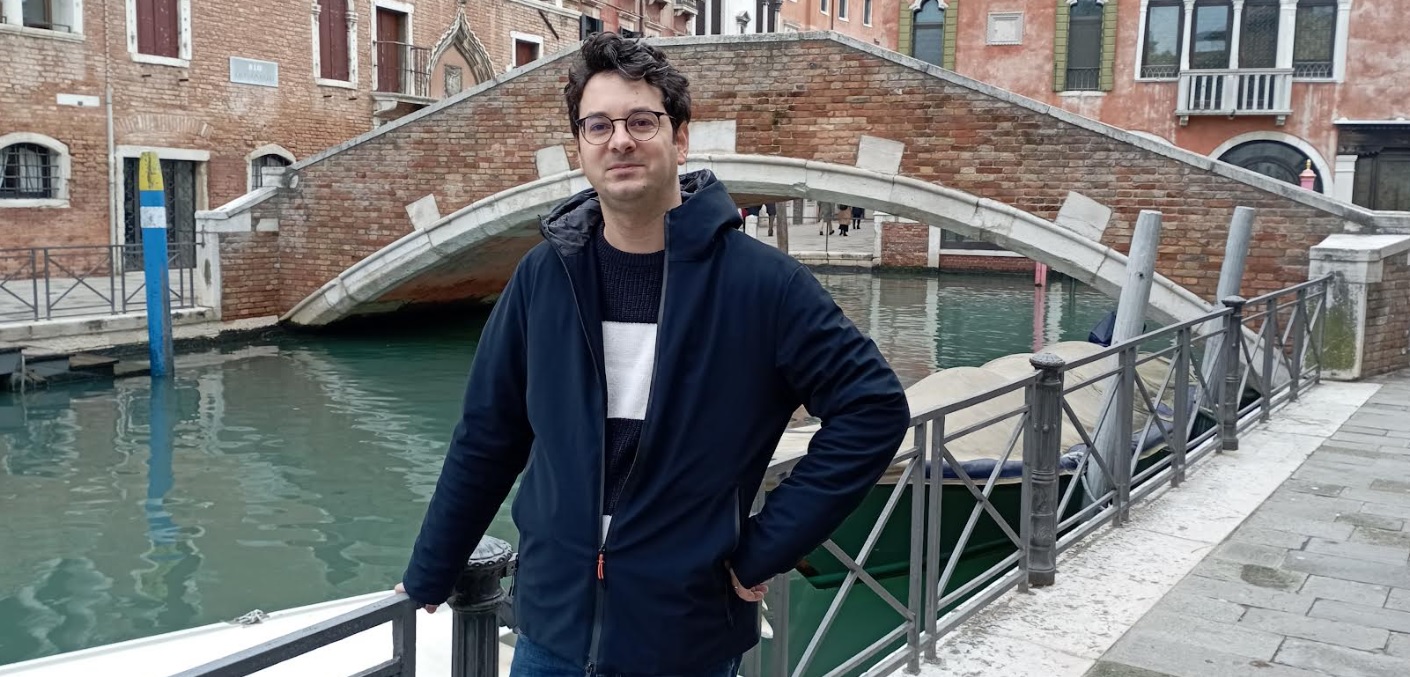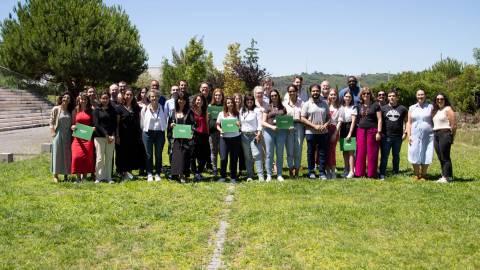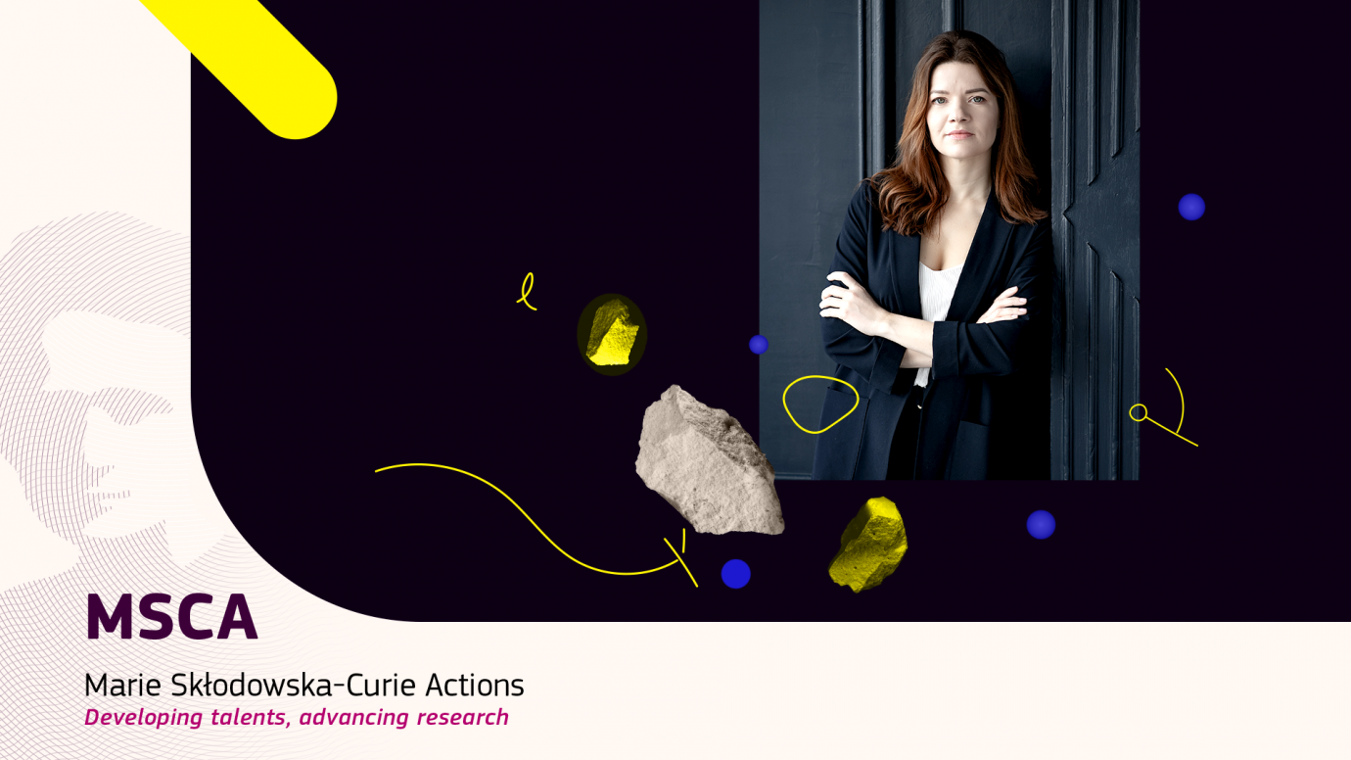You are here :
- EUTOPIA website
- Home
- News
- News section
- Stories
- Testimonials
Testimonial from a PhD Student Internationalizing his research in EUTOPIA

"EUTOPIA has allowed me to internationalise my PhD project between Barcelona, Venice, Gothenburg and Ljubljana and to discover new research directions"
We are talking to Ivan Lo Giudice, a student on the UPF PhD programme in Humanities. He is doing his thesis on the little known figure of Joan Estelrich, a historical character who lived during the first half of the twentieth century and played a key role in the construction of European diplomacy.
The format of his thesis is also rather special. It is being co-supervised by Ca’ Foscari University of Venice, a member of the EUTOPIA European University. In other words, jointly between the two universities. In addition, thanks to his participation in the alliance, he has been able to do a research stay at the University of Gothenburg and has participated in the Science Slam scientific outreach event at the University of Ljubljana, as part of the recent EUTOPIA Week, held in November.
Your thesis focuses on the figure of Joan Estelrich Artigues. Tell us a little bit about who he was?
Joan Estelrich i Artigues is a historical character who lived during the first half of the twentieth century and was many things: a writer, a politician, a diplomat, a journalist... He is a character that I have liked right from the outset because in his career I have found all the elements I wanted to study and learn about in greater depth through my doctoral project: national identity, Catalanism, international relations, the cultural element, sensitivity to literature, intellectual cooperation, and pan-European ideals.
Why is it a reason for a thesis?
After his death, Estelrich practically fell into oblivion, basically, due to his choice to make propaganda from Paris in favour of the rebels during the Civil War, according to his patron, Francesc Cambó. Obviously, this was a poor decision. At the same time, I think it is fundamental to consider the circumstances in which some decisions were made and it cannot be forgotten that many Francoists regarded him with suspicion or, quite simply, wanted him dead. The creation of the Joan Estelrich Collection in the Library of Catalonia, at the beginning of the 21st century, has made a huge amount of unpublished material about the Mallorcan intellectual available to researchers, and since then, many publications have been produced about his life and his activities. In my work I focus above all on his Catalan nationalist period - that is, until 1936, when Estelrich was 40 years of age - and on his international outlook.
He played an important role in the League of Nations and in UNESCO, but he is not a very well-known or recognized figure. What milestones did he achieve internationally?
That’s right. Estelrich was convinced that every intellectual should have an active role within society and, in fact, he himself was a man of action, a polyglot, and he was extremely talented for public relations. These gifts and the support of Francis Cambó gave him the opportunity to act within the first international institution that aspired to unite all world governments: the League of Nations, which was founded in Geneva in 1919. There, he acted above all in the Minorities Section with the aim of establishing relations with the other European nationalist movements. For this reason, he was also linked to other realities, such as the Congresses of Nationalities, the Inter-Parliamentary Union and the International Committee on Intellectual Cooperation.
All this experience in the world of international diplomacy was to prove key to joining the Spanish delegation to UNESCO during the 1950s.
in fact, he himself was a man of action, a polyglot,
and he was extremely talented for public relations."
Your thesis is not “normal” because it has an important international component, being jointly supervised by UPF and Ca’ Foscari University, in Venice. What does this mean? What does it imply?
Applying for the PhD programme at Pompeu Fabra was quite natural given my interest in Catalan studies and, in general, in the area of studies into nation and collective identities (I also belong to the States, Nations and Sovereignties Research Group - GRENS). In addition, I already knew both the city and the University because a few years ago I was an Erasmus student in Barcelona. At the same time, I am Italian, from Venice, and I liked the idea of being able to do my doctorate at the two universities considering that Venice is one of the Italian cities where historically there have been courses in Catalan language and culture and there are professors with a deep knowledge and a great passion for this topic, such as professor Patrizio Rigobon, who is my Italian thesis supervisor. Coincidentally, in 2021, Ca’ Foscari University was one of the new universities to join the EUTOPIA alliance, so my co-supervision, in fact, became a EUTOPIA doctorate, even if it is not possible to officially “label” it as such.
I would advise everyone to do a doctorate between two countries and two different universities. I think it is fundamental to see that there are differences in many aspects, inside and outside the university, it is good to learn languages, acquire flexibility and get out of your comfort zone. In addition, obviously, living in two countries also means having access to different sources, ideas and finding new research directions.
You have also done a stay in Gothenburg with a EUTOPIA grant. What advantages has being able to join this new alliance of universities meant?
Like the subject of my thesis, I also like to travel and I feel part of an international community: for some years I have considered myself a convinced representative of the Erasmus generation. A year ago I read on the EUTOPIA website that there was an opportunity to do a research stay at another member university and I decided to propose a project with the University of Gothenburg, which has a research centre in European studies (I will always thank my thesis supervisor, professor Jaume Subirana, and also professor Enric Vallduví, for their help with the bureaucratic matters that are always involved in these international initiatives). The experience was most positive, I had the opportunity to meet many researchers and to exchange ideas with them, to present my project and to do research in Sweden. I was very surprised when I found a book by Joan Estelrich in the library in Gothenburg! Finally, another positive aspect is that I used English, which is an indispensable language in the world of international research, although it is not so central to my project (I have worked more with Catalan, Italian and Spanish).
and I feel part of an international community:
for some years I have considered myself a convinced
representative of the Erasmus generation."
Why do you think it is important to work in a network on research issues?
I think it is fundamental to work in networks, especially international ones, because it gives you the opportunity to learn about new methodologies and new research directions. Nobody knows everything; I think that being a researcher is like a lifelong, continuous educational process, and working alongside professionals with different specializations is a good way to grow and learn. For example, during the three years of my PhD I have found clues for possible developments of my project on a PostDoc, and meeting experienced researchers has been key to get discover new stimuli and new ideas.
You recently participated at the EUTOPIA Week in Ljubljana presenting your research at the Science Slam. What does the activity consist of?
Let’s say it was something completely different from my usual work, which involves a lot of research in archives and reading scientific articles. This event is made to communicate research outside the academic world and to a general audience. I and another eight PhD students or young researchers from the EUTOPIA universities gave a brief, five-minute presentation in the theatre of the University of Ljubljana to more than 100 people: all in English (by the way!), with two Slovenian presenters, cameras and stage lights, all broadcast live on YouTube and Facebook, with a final vote by the audience inside the theatre and also from home. Let’s say that, for me, it was like participating in a sort of Eurovision of sciences!
Why is it important to make the research carried out at universities known to a non-expert public?
This one in Slovenia, for me, was the first time I had participated in such an event. In the end I can say that it was fun and, although it was a bit stressful to have an audience and the cameras, I understand that sometimes it is important and rather useful to forget the technicalities and the “publish or perish” mentality and do things to communicate our investigations in a fun way. After all, research isn’t conducted to leave it forever in academic books or in laboratories, it is done for society, to improve it or to reflect on our reality that belongs to everyone.
or in laboratories, it is done for society, to improve it
or to reflect on our reality that belongs to everyone."
Would you recommend participating in EUTOPIA to your colleagues?
I strongly believe in the EUTOPIA project and in the not too distant future when universities will be part of a single European campus. I would recommend that everyone should participate in this international knowledge network. There are initiatives at various levels: for early-year university students and for research. In addition, this year, the European Union has decided to continue funding the alliance until 2026 with more than €14 million. This seems to me very positive, it is further confirmation that this project is yielding results and that it has all the necessary ingredients to grow even more in the coming years.
What has the alliance allowed you to do that otherwise wouldn’t have been possible?
Personally, it has allowed me to internationalize my doctoral project, take it to Sweden and Slovenia, and discover new perspectives for the coming year, once I have defended my doctoral thesis. In addition, if to network is to make progress, I think that in these years I have taken many steps forward between Barcelona, Venice, Gothenburg and Ljubljana.
What are the next steps for your research?
Right now I am reviewing my doctoral thesis, all my energy is geared towards this. In the future I would very much like to continue to maintain a close relationship with Pompeu Fabra, a university that has been pretty important in my training as a professional and also as a person. I am looking forward to developing the current project with a PostDoc, with resources that can be found in both Italy and Sweden, depending on the opportunities that arise. Surely, the study of Joan Estelrich will not end with the thesis, I think there are still many important things to discover and go into greater detail on.




